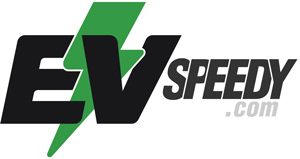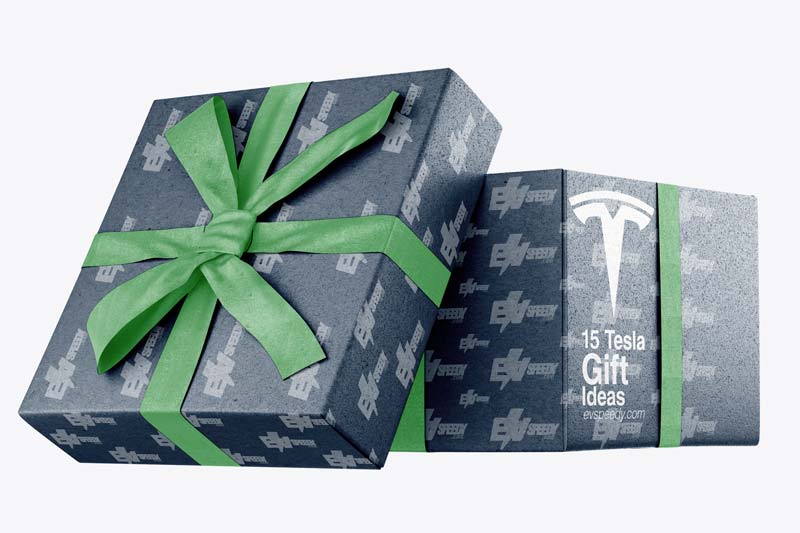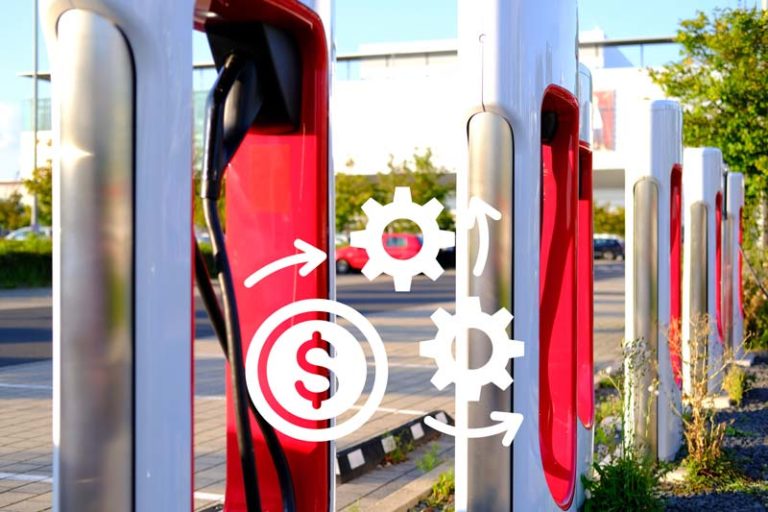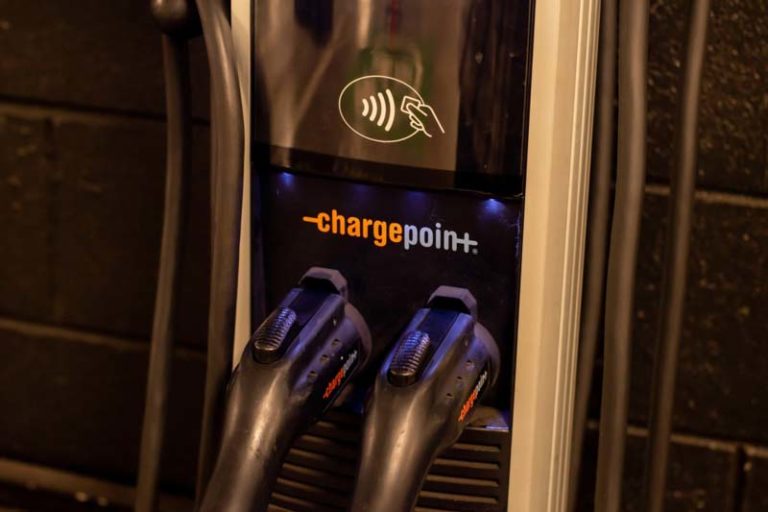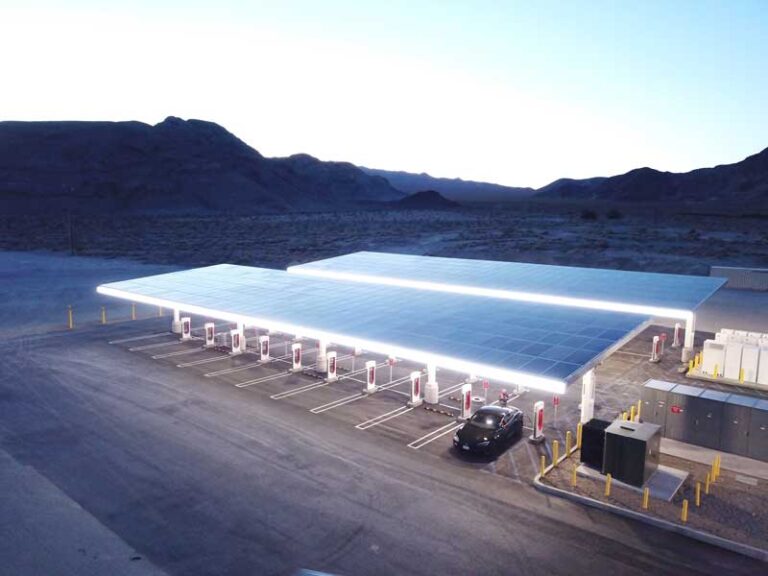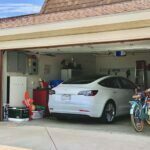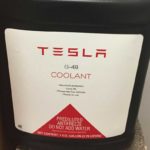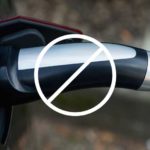What is this I hear about Tesla frowning on me when supercharging my Teslas all the time? Why did they build the supercharger network if it is bad for my car to always charge with them?
Supercharging your Tesla every time will be bad for your battery and car at the same time. Tesla designed its batteries to charge at slower rates, which is optimal. Tesla also built its supercharger network to help Tesla owners charge on long road trips. You should rather use alternative charging methods to always charge your Tesla.
I know you still have some questions. I went into some detail below; check it out.
- Why You Shouldn’t Supercharge Your Tesla All the Time
- All About Supercharging
- There Is More Than One Way To Charge a Tesla
- Different Charging Methods Compared
- The Best Home Charger for Your Tesla
- Frequently Asked Questions
- How Can I Maximize the Tesla Battery Life?
- Is It Free To Supercharge My Tesla?
- What Is the Lifespan of a Tesla Battery, and How Can I Extend It?
- Is It Okay to Leave My Tesla Plugged in Even After It's Fully Charged?
- Are There Any Precautions to Consider When Charging My Tesla During Extreme Weather Conditions?
- Can I Use Third-Party Chargers for My Tesla, or Is It Better to Stick to Tesla's Charging Options?
- How Does the Frequency of Charging Impact the Overall Performance of a Tesla Battery Over Time?
- Is It Necessary to Fully Charge My Tesla Regularly?
- How Can I Find the Nearest Charging Station for My Tesla?
- What Are Some Common Signs That Indicate My Tesla's Battery Needs Maintenance?
- Are There Any Special Considerations for Long-Term Storage of My Tesla?
- How Does Fast Charging Impact the Overall Electricity Bill?
Why You Shouldn’t Supercharge Your Tesla All the Time
It sounds great to charge your Tesla in fifteen minutes and keep going with your busy life, but is this the best thing for your vehicle? Turns out it actually isn’t. Here’s why:
As your Tesla battery charges, it produces heat inside the battery. If you supercharge your Tesla frequently, the constant high heat will damage the battery cells. In the long run, this will cause the battery not to charge as quickly as it usually did.
That said, the damage of constant supercharging is so small that many owners won’t even notice it unless they’re really trying to max out their miles. The most noticeable effect will be that the peak charging rate of your battery will decrease slightly.
As you can see from the YouTube video below, the Ride Haling Company Tesloop has charged their Tesla Model S to 100% every time using a supercharger. This ultimately cost them, as they had to replace the battery pack after 192,000 miles. This is still impressive!
All About Supercharging
When it comes to Tesla, supercharging consists of charging your Tesla battery with a Supercharger. They are Tesla-owned and are high-capacity chargers that are capable of adding up to 200 miles of charge in only 15 minutes.
Superchargers have a current of 480 volts. Most home outlets have only 120-volt outlets, and even if you purchase a Wall Connector, it won’t go over 240 volts, which is only half of what a Supercharger can reach.
Naturally, you can’t just install a Supercharger in your garage. Superchargers require a complex infrastructure with high-current cables, which is why it’s only available in specific destinations.
There are 30,000 Superchargers distributed around the world. They are usually located strategically so that you can drive from one Supercharger station to the next in a single charge.
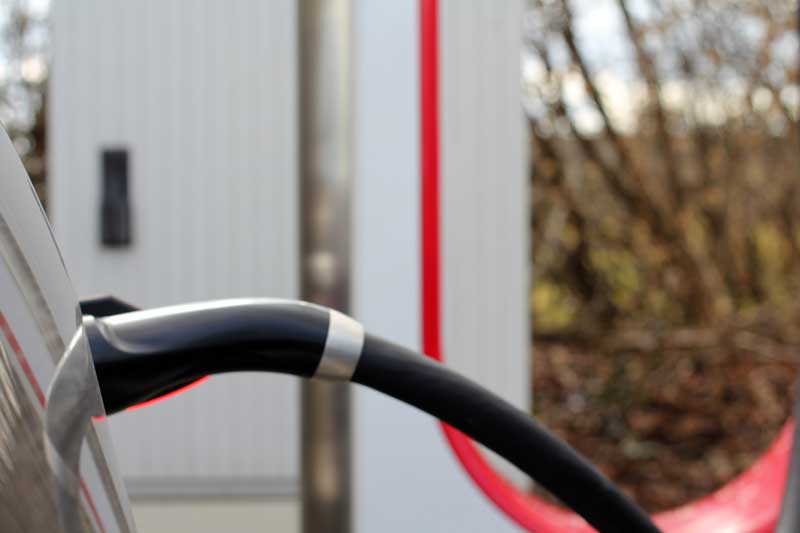
There Is More Than One Way To Charge a Tesla
Other than supercharging, Tesla offers several ways to charge your vehicle.
Home Charging
The wall connector is the fastest, most cost-efficient charging option for when you’re at home.
You simply have to plug in the car when you get home and charge until you leave the following day. Fully charging your Tesla can happen within thirty hours, which is a fast enough range for those who regularly commute and need to have the vehicle ready each day. But fully charging your Tesla is mostly unnecessary.
If you’d like to read more on this topic, check out Why Can’t I Charge My Tesla to 100%? In this article, I give you the most obvious reasons with added solutions.
If you don’t drive long distances daily and don’t want to rework the wiring of an outlet, your Tesla can charge at an ordinary three-prong outlet. This is often called trickle-charging, and it’s the slowest method of all—merely 3 miles of charge per hour.
As an added bonus to this article, I’ve created this easy-to-use charging calculator. Simply input your model, charging wattage, and charging percentage, and you will get the estimated time it will take to charge a Tesla in terms of hours. You can play around with numbers a bit just to see how charging time changes:
Destination Charging
Destination charging is a courtesy that many hotels and resorts offer. They will have wall chargers available for you to access while on vacation or traveling for business. You can use the ChargePoint app to locate the charging station closest to you in both rural and urban locations.
This YouTube video shows how to charge your Tesla at a Destination Charger:
Just make sure the connector is labeled J1772 or 240 volts. If you keep a mobile connector in your trunk, you should be able to connect to third-party charging with no issue.
Different Charging Methods Compared
If you need to charge a Tesla quickly, find a supercharger. However, if you want to take the best possible care of your battery, you may want to have other options at hand. Ideally, you should only rely on supercharging when you need to get back on the road quickly.
Trickle charging is slow and steady, but it makes a Tesla battery last longer.
| Charging Type | Volts | How Long | Driving Time on Full Charge |
| Regular three-prong outlet | 120 volts | Four days for a full charge | Approximately 375 miles or 604 km |
| Wall connector | 240 volts | 6 to 9 hours | Approximately 375 miles or 604 km |
| Destination Charging | 200 volts or more depending on the charger type | 1-12 hours | Approximately 375 miles or 604 km |
| Third-party Charging | 120 or 240 volts (with the Tesla mobile connector) | Up to 10 hours | Approximately 375 miles or 604 km |
| Supercharger | 480 volts | 15 minutes | Approximately 200 miles or 322 km |
The Best Home Charger for Your Tesla
Installing a wall charger at home is simply the best way to charge your Tesla. To start, a wall charger fills your battery almost fifteen times faster than connecting to an ordinary three-prong outlet.
On top of that, most utility providers charge less for electricity at night, when the demand is lower than peak usage times. This will save you money as you charge your Tesla at night so it’s ready to drive the next day.
Tesla Wall Connector

The Tesla home Wall Connector isn’t cheap, but it’s about the best you can get. Because it’s first-party, it’s probably the most reliable charger you’ll find for a Tesla. The wall charger also connects to your wifi, which lets it update automatically.
You will also need to factor in the installation cost of an electrician, which can be anywhere between $750 and $1000.
ChargePoint Home Flex Electric Vehicle Charger

The ChargePoint Home is also smart-enabled. After you download the app, the charger will update automatically.
The ChargePoint Home is more expensive than the first-party option, but it may be a good choice for a home with EVs from different manufacturers.
Pulsar Plus Level 2 Electric Vehicle Smart Charger

The cost is a middle ground between the Tesla Wall Connector and the ChargePoint Flex. If you plan on buying it in the US, you should get a CCS to Tesla adapter.
Is It Bad to Always Supercharge Your Tesla?
While occasional use of Tesla’s superchargers is not detrimental, frequent and exclusive reliance on supercharging can have a negative impact on the long-term health of the battery.
Regular supercharging can lead to increased heat generation within the battery cells, which may gradually degrade the overall performance and capacity of the battery over time. To preserve the longevity of your Tesla’s battery, it’s advisable to use supercharging primarily for long-distance travel and rely on slower charging methods for daily charging needs.
Is Supercharging Bad for Tesla?
Supercharging, when used occasionally and in line with Tesla’s recommendations, is not inherently harmful to the vehicle. However, frequent and consistent supercharging, especially at high power levels, can lead to accelerated wear and tear on the battery cells, potentially reducing the battery’s overall lifespan.
To maintain the health of your Tesla’s battery, it is recommended to balance supercharging with other charging methods and avoid relying solely on fast charging for daily charging needs.
Frequently Asked Questions
How Can I Maximize the Tesla Battery Life?
Is It Free To Supercharge My Tesla?
What Is the Lifespan of a Tesla Battery, and How Can I Extend It?
The lifespan of a Tesla battery typically varies depending on several factors, including usage patterns and environmental conditions.
To maximize the longevity of your Tesla’s battery, it’s essential to follow recommended charging practices, avoid frequent deep discharges, and steer clear of extreme temperatures.
Regular software updates from Tesla also help optimize the battery’s performance over time.
Is It Okay to Leave My Tesla Plugged in Even After It’s Fully Charged?
It’s perfectly safe to leave your Tesla plugged in even after it reaches a full charge. Tesla’s sophisticated onboard charging system automatically halts the charging process when the battery reaches its full capacity, preventing any risk of overcharging.
So feel free to leave your Tesla plugged in without any worries.
Are There Any Precautions to Consider When Charging My Tesla During Extreme Weather Conditions?
During extreme weather conditions, it’s crucial to be mindful of certain precautions to maintain your Tesla’s battery health.
In scorching temperatures, avoid leaving your Tesla parked in direct sunlight for prolonged periods.
Conversely, in freezing temperatures, preheating your battery before charging can optimize its performance and efficiency.
Can I Use Third-Party Chargers for My Tesla, or Is It Better to Stick to Tesla’s Charging Options?
While Tesla offers efficient charging solutions, using third-party chargers with the appropriate adapters is possible. However, it’s important to ensure that the third-party charger is compatible with your Tesla model and adheres to the manufacturer’s specifications. This precaution can help avoid potential damage to the vehicle’s battery and electrical system.
How Does the Frequency of Charging Impact the Overall Performance of a Tesla Battery Over Time?
Frequent charging, especially through fast charging methods like supercharging, can marginally affect the long-term performance of your Tesla’s battery.
To ensure the battery’s sustained health, consider utilizing slower charging options whenever possible, reserving fast charging for long journeys or when you’re in immediate need of a quick charge.
Is It Necessary to Fully Charge My Tesla Regularly?
For daily usage, it’s not essential to fully charge your Tesla every time. Partial charging within the recommended range can actually be more advantageous for the long-term well-being of the battery.
Tesla’s advanced onboard software efficiently manages the battery, ensuring that it remains within optimal charging levels for your everyday driving needs.
How Can I Find the Nearest Charging Station for My Tesla?
Locating the nearest charging stations for your Tesla during a road trip is simple with various mobile apps such as Tesla’s Supercharger network app, PlugShare, or ChargePoint.
These applications provide real-time information about the availability and location of charging stations, making it convenient to plan your road trips and ensure a seamless charging experience along the way.
What Are Some Common Signs That Indicate My Tesla’s Battery Needs Maintenance?
Several common signs may suggest that your Tesla’s battery requires attention, such as a reduced driving range, extended charging times, unexpected power loss, or any error messages related to the battery. If you notice any of these indications, it’s advisable to reach out to Tesla’s customer support or visit a certified service center for a comprehensive battery inspection and necessary servicing.
Are There Any Special Considerations for Long-Term Storage of My Tesla?
If you plan to store your Tesla for an extended period, it’s crucial to maintain the battery’s charge level between 50% and 60% to promote its longevity. Additionally, store the vehicle in a cool, dry environment to prevent unnecessary battery drain. Tesla’s “Storage Mode” option optimizes the battery for long-term storage, ensuring it remains in an ideal condition for when you’re ready to use the vehicle again.
How Does Fast Charging Impact the Overall Electricity Bill?
Fast charging, particularly through superchargers, may slightly elevate your electricity bill compared to regular home charging. To minimize charging costs, consider taking advantage of off-peak electricity rates by charging your Tesla at home during non-peak hours.
Additionally, some public charging stations offer competitive pricing, so it’s beneficial to conduct thorough research and plan your charging strategy to optimize cost-effectiveness.
Check out these 20 great gift ideas for yourself or a Tesla fanboy.
Contact Us if you have any questions or queries.
